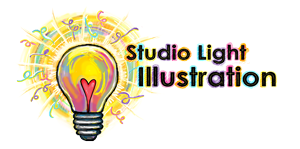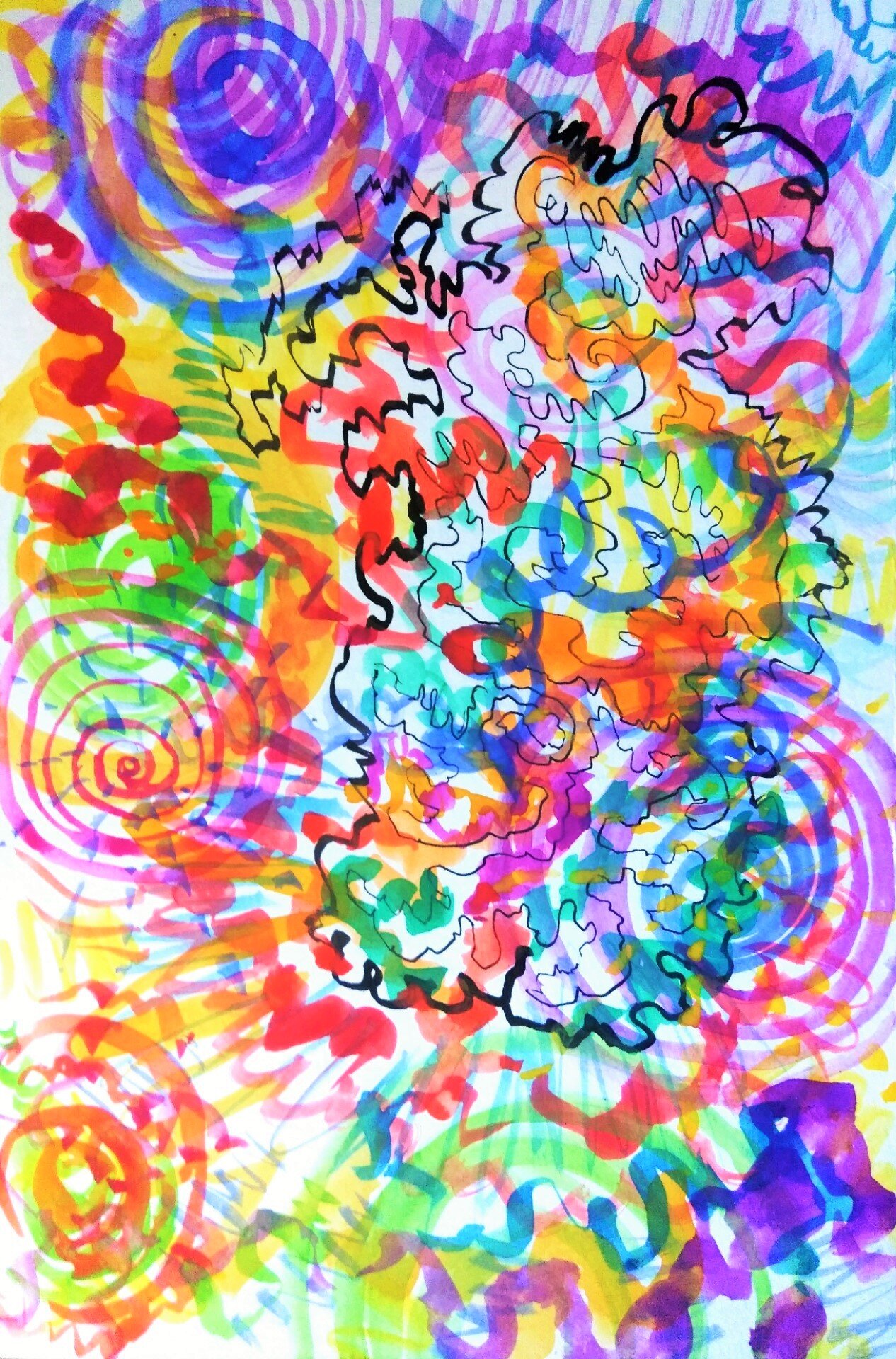Reflection and Artwork by Sebila Kratovac
Navigating my life as an introvert, I have realized that many people have the wrong idea about introversion and, to make things more confusing, even introverts don’t truly understand how they differ from extroverts. From my perspective, the biggest myth about introverts is that they don’t like social situations. For example, I love getting together with friends and talking to people that can handle my communication style, but put me in a classroom or a meeting with many talkative extroverts, I can’t wait to get out and spend some time alone.
Another common myth is that all introverts are shy. Shyness can develop from insecurity and anxiety, but many introverts actually love connecting with people and thrive in more relaxed and intimate social situations. Instead of thinking that introverts innately dislike human contact, I believe that their nervous system is wired differently and is much more sensitive to outside stimuli. With new and unfamiliar situations, introverts are easily drained of energy, needing to recharge by spending some time alone. If they are in their element - if they feel safe, seen, and valued - introverts can be the most talkative and dynamic people in the room.
Sadly, many societies don’t value introversion, especially in schools and the workplace. In Western societies in particular, it seems that extroverts are handsomely rewarded in the public sphere, while introverts, working quietly and often doing an excellent job, get passed for jobs, promotions, and other opportunities. Loudness and assertiveness are seen as competence, while diligence and quietness signal weakness.
I was recently watching a YouTube coaching session with Chris Do, a graphic designer and an incredible design educator at The Futur, and his self-proclaimed introvert client, Rebecca Heinemann. In the video called Secret Power of Introverts - Being A Great Listener ep. 4, Chris turns the table around on introverts because he gets Rebecca to see that, instead of believing that something is wrong with her, she can embrace the way she is and let introversion work for her. As Rebecca talks about her reluctance to approach people and engage in small talk, Chris challenges her to connect with people from an empowered state of mind. Our beliefs are powerful and thinking that we are worth engaging with calms the nervous system down and helps us have a fulfilling exchange with another person. If we start seeing introversion as an asset, we can even feel excited about networking and doing business.
As an introvert himself, Chris talks about being in design meetings with a room full of extroverts talking over each other and feeling petrified to speak up and assert himself. This is where he learned about his superpowers as an introvert. After a particularly intense meeting, his boss noticed that he was quiet and asked him his opinion on the presentation. Chris answered with a very thoughtful and cohesive strategy on how to improve a design discussed at the meeting. From then on, his boss always knew where to go for smart advice. This important experience taught Chris that his power lies in being an excellent listener, soaking up all the information, and giving himself time to think about everyone’s and his own opinion to formulate a win-win scenario for the design team. For me, listening lets us “see into” people and connect on a much deeper level that allows us to understand others and their needs. In workplaces and personal relationships, this quality is priceless.
Chris discovered his second superpower as he started valuing himself more. Since everyone stopped to listen to him when he did talk, his words weighed a lot and he could transform the vibe in a room as he wished. Because people responded to him positively, he realized that he has power to shape energy around him. Chris also discovered that his tendency to think deeply and have a rich inner life gave him an incredible manifesting ability. He could visualize what he wanted and was usually able to see it come to fruition. When he was living through situations that he clearly pictured in his mind, he felt a sense of déjà vu, as if he had experienced the same situation before. Through empowering himself, Chris was eventually able to show up in the world with confidence and, using his empathetic traits, has helped many people including Rebecca to thrive in life and business. In fact, serving others and showing them how they can cultivate confidence has been his greatest fulfillment and his most cherished superpower.
So, what are some practical steps that other introverts can take to tap into their superpowers? Chris suggests to Rebecca that the first step is to accept herself as she is an to stop caring about what others think. Appreciating ourselves and believing that there is nothing wrong with us is important so that we can feel relaxed enough to let go of control in social situations. The second step is to commit to making important changes in our life and see introversion as an asset rather than an excuse to limit ourselves. With commitment to change, we can start getting out of our comfort zone every single day. It is a good idea to ask a friend or hire a coach to hold us accountable for accomplishing our goals. Lastly, Chris encourages Rebecca to trust the transformation process and to go with it even though he sees that she is resistant to some of the advice he is giving her. In my experience, resistance is a sign that I am confronting something important and that I should examine how I feel about what I am resisting. Is it something that will benefit me in the long run? Am I resisting change because of fear or because the change is not aligned with my desires?
I am not at all surprised that introverts are well-represented in creative fields since thoughtfulness and introspection are very conducive to creativity. I often marvel at the courage it takes for artists to put their work out there for everyone to judge. It is truly a paradox since artists tend to be the most resistant to this kind of social exposure. There must be something about introversion that helps artists deeply connect with their audience. I believe it is their ability to be alone, to feel the depths of their emotions, to be intimately familiar with their own inner landscape which they can energetically transmit to the audience. Interestingly, many performers note that they experience a high after a play or a concert because they feel that they become one with the audience through an equal exchange of energy. The superpower to merge with others is another important introvert superpower. This superpower allows introverts to receive energy that is freely given to them and to give out energy that they desire to share with others. Extroverts, of course, have many incredible superpowers as well. The big question is, will the West finally recognize the riches of the subtle introvert?





